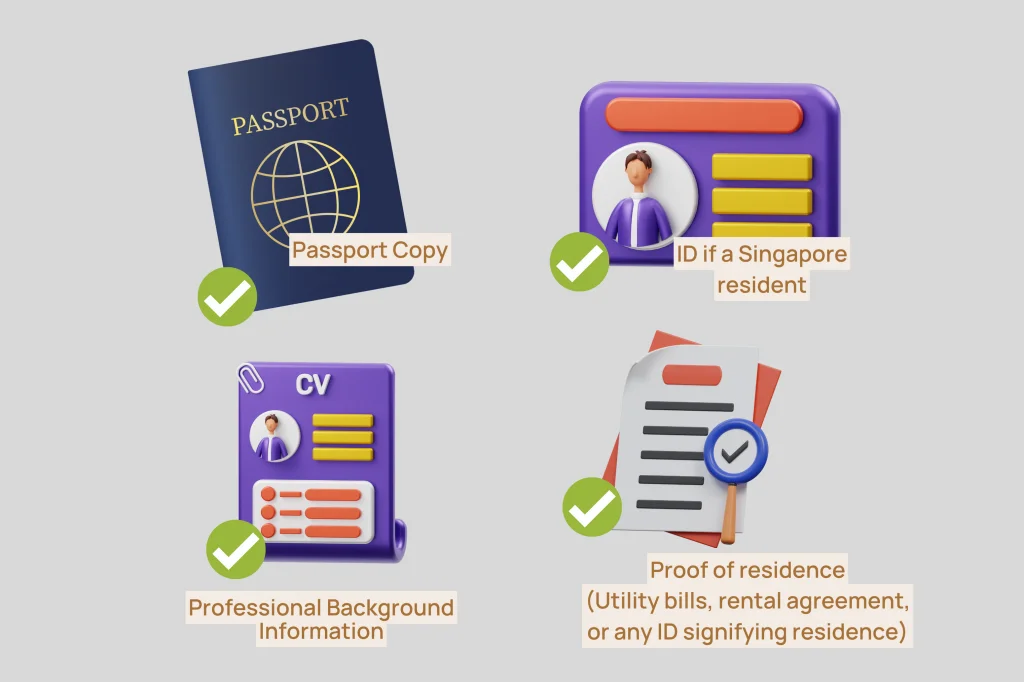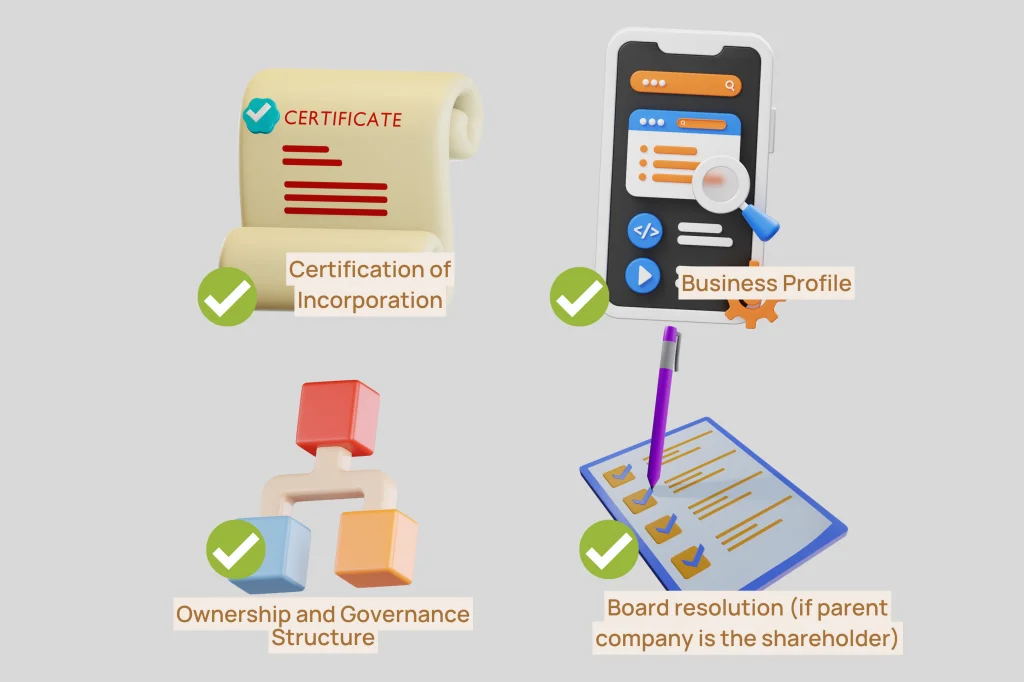Singapore has been called by many names in the economic and business sector — the most digitally competitive economy in Asia, the best in the world for doing business, 2nd richest economy in the world and the list goes on. Now home to 575,527* businesses as of March of 2023 there is no better time to maximise the opportunity for your business ideas to flourish.
Compiled in this article is a step-by-step guide in incorporating a company in Singapore this 2023.
Step 1: Secure Incorporation Requirements
Before incorporating a company in Singapore, the following requirements are note-worthy for a quick and continuous application process. You can prepare these by going through the list or you can assign a filing representative and expert agents who will complete the documents and processes on your behalf.
Incorporation Requirements
Starting or incorporating a company requires a capital. In Singapore, you can do so with at least 1 SGD.
For foreign entrepreneurs looking to establish a business in Singapore, one of the requirements is to appoint at least one resident director, authorised representative, general partner, or manager depending on your business structure
A Singapore-registered office address is where your business is expected to conduct its operation, and receive communications and notices. This address will be reflected in Singapore’s overall regulatory business body, Accounting and Corporate Regulatory Authority’s (ACRA) filing system.
We can indicate our Singapore office address in your application should you seek for our assistance.
Your company should appoint a corporate secretary within 6 months of incorporation. This applies the same with appointment of nominee director, our team can provide the named Corporate Secretary for you.
An individual or corporate shareholder is required in incorporating a company in Singapore. In appointing one, no restrictions are imposed on the nationality, location or race. Which means a hundred percent foreign investor is allowed to own shares in your company.
There are certain requirements that needs to accompany each of your shareholders. Find them in the infographic below.
Individual Shareholder Document Requirement

Corporate Shareholder Document Requirement

IMPORTANT:
Depending on the structure of your business, you will also be required to have an auditor within the first three months unless your company meets statutory exemptions. Our well-versed auditors in the Group can do the job for you.
Step 2: Reserve your Business Name
In registering a business in Singapore, your corporate/trade name should be unique and no other existing entities should have any likelihood to yours. See below table for guide and examples.
List of Words Disregarded in the Assessment of Names
Source: ACRA
Example of Rejected Names
Source: ACRA
You can check the availability of your preferred business name through Singapore’s business filing portal, Bizfile. You will need a SingPass, a UEN, or government or corporate account. Whilst this is a challenge for non-residents, there are registered filing agents whom you can count on to complete this for you. Once available, the preferred company name will be reserved for 120 days for 15 SGD.
While reserving a company name, you will also need to specify a maximum of two business activities by choosing the relevant Singapore Standard Industrial Classification (SSIC) code corresponding to the nature of your business.
For more information to note in choosing and reserving a business name, ACRA has prepared a list of detailed guidelines.
Step 3: Preparation of Incorporation Documents
After all requirements are secured and a unique business name is reserved, you will have to prepare, sign, and if required, file, the below documents to ACRA.
- Company Constitution – Known as the legal binding between the company and its internal stakeholders, this document can be accomplished through a model constitution by ACRA or a customised constitution that your registered filing agent can complete for you.
- Consent by Directors – Also termed as Form 45 is another required document that designates the consent to act as directors and list the statement of non-disqualification. Should you have a registered filing agent, they will process the form for you and will only require your signature
- Consent by Corporate Secretary (Form 45B) – The form details the qualifications of your appointed corporate secretary and their consent to act as such. Once you opted for an assistance of a registered filing agent, they can process this on your behalf.
- Declaration Form of Directors – All Directors, whether you’re using a Nominee or not, should complete a nominee director declaration form, testifying whether they are acting as nominee for other individuals or legal entity.
- Declaration of Company Controllers – The Ultimate Beneficial Owner or the shareholder with the most power in your company is required to sign a declaration form as well.
From here on, you can register your business with ACRA or appoint an agent to do so. Registered filing agents can assist you in completing all the requirements and will perform the registration steps on your behalf. Most times, you only need to provide your signature and some supplementary documents to keep the process going.
Our team of experienced professionals on board can walk you through the process.
Get in touch with us to kick start your incorporation and business growth today.
